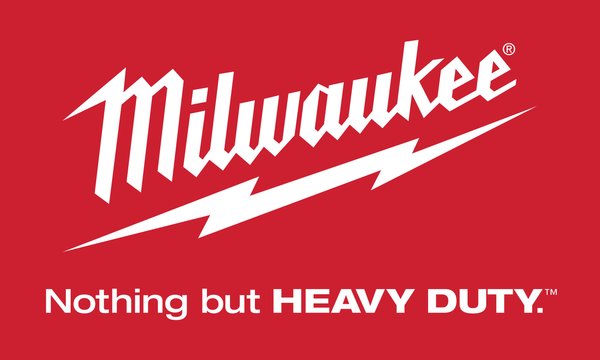Do You Need a Licence to Operate a Skid Steer Loader (Bobcat) in WA?

Operating a skid steer loader, commonly known as a “Bobcat,” can be a rewarding and lucrative job. But before you can get behind the controls of one of these versatile machines, you need to understand the requirements for operating it safely.
In this article, we’ll explore the answers to some common questions about Bobcat operation, including whether or not you need a licence to operate a skid steer here in Western Australia.
What is a skid steer loader (AKA a Bobcat)?
A skid steer loader, also known as a Bobcat, is a piece of construction equipment that is commonly used for digging, grading, and levelling surfaces like earth, gravel, or bluestone – amongst many others. Skid steer loaders earned their name from the way they move on skid-steer tracks, which allow the machine to turn in place and move in any direction.
It’s important to point out that skid steer loaders, can be equipped with either wheels or tracks, depending on the specific model and the tasks they are intended to perform.
Skid-steer tracks or wheels are designed to “slide” or “skid” in one direction, while the other set turns in the opposite direction, enabling the machine to turn on the spot. Skid steer loaders are often used in tight or confined spaces, making them a versatile and valuable tool on construction sites.
Did you know?
Skid steer loaders are sometimes called a Bobcat because that is the name of one of the most well-known manufacturers of this type of construction equipment. Bobcat is a company that specialises in the production of compact construction equipment, and is one of the most popular brands of skid steer loaders on the market.
The name Bobcat has become so closely associated with skid steer loaders that many people use it interchangeably with the term “skid steer loader”.
Is it hard to operate a Bobcat?
Operating a Bobcat, or any other type of skid steer loader, can be challenging if you have no previous experience with heavy equipment (yes, a skid steer is considered heavy equipment despite its smaller size).
However, with proper training and practice, operating a Bobcat can become second nature. Like any other piece of construction equipment, it is important to follow all safety guidelines when operating a Bobcat. It is also important to receive proper training from a qualified instructor, who can teach you how to properly operate the machine and avoid any potential hazards.
What does a skid steer operator do?
As a skid steer operator, your responsibilities may vary depending on the project, but they may include excavating, grading, levelling the ground, moving large objects and more. Skid steer operator jobs can be full-time, part-time, or contract positions.
To be a successful skid steer operator, you should have a general understanding of construction safety procedures, experience using a skid steer and the correct training.
How much money can you make operating a skid steer?
According to the latest stats from SEEK, the average annual salary for Skid Steer Operator jobs in Australia ranges from $60,000 to $80,000. However, owning your own skid steer could allow you to make more money, depending on the amount of work you are able to find and the rates you are able to charge for your services.
Of course, as an owner-operator, you would be responsible for finding your own work and negotiating your rates with clients, which could potentially allow you to earn more than the average salary for skid steer operators in Australia.
However, it is also important to consider the additional costs and responsibilities that come with owning your own equipment, such as maintenance and repairs, which could impact your overall earnings.
Do you need training to operate a skid steer?
Operating a skid steer, or any other type of heavy equipment, can be dangerous if you don’t know what you’re doing. While you don’t need a licence to operate a skid steer, it’s important to receive training from a reputable training provider who can teach you how to properly operate the machine and comply with safety regulations.
Completing a training course from a reputable training provider (RTO) is necessary to gain employment on construction sites, which require evidence that you have undertaken the required training and assessment to operate a skid steer safety.
Equip-Safe offers a nationally recognised training course (RIIMPO208F Operate support equipment) that meets this criteria and will help you to secure work as a skid steer operator anywhere in Australia.
Do you need a bobcat licence in WA?
Western Australia is no different, you don’t need a licence to operate a Bobcat. However you will need to complete training from a registered training organisation, like Equip-Safe, to gain employment on work sites.
How long does a skid steer licence last?
The statement of attainment that you receive after completing skid steer training, does not have a specific expiration date. The certificate remains valid until the operator’s skills and knowledge need to be refreshed in order to operate the equipment safely. It is the responsibility of the operator and their employer to ensure that the operator maintains their competency and is able to safely operate the skid steer.
This may involve regular training and testing to ensure that the operator remains up-to-date on the latest safety guidelines and best practices.
How much does a Bobcat ticket cost?
Get in touch with the friendly team at Equip-Safe to discuss options, and for on-site training costs.
Where can I find courses on Bobcat / Skid steer loader training in Perth?
As a nationally recognised training provider, Equip-Safe offers one day training and assessment for experienced operators, as well as on-site training. Learn more.
Book your skid steer training course today
Working as a Bobcat operator can be a lucrative and rewarding job, with a wide-range of opportunities. While you don’t need a licence to operate a Bobcat, you will need to undertake training from a recognised training provider in order to gain employment and operate the equipment safely.
Learn more about our skid steer training course or get in touch to learn more about our training courses













